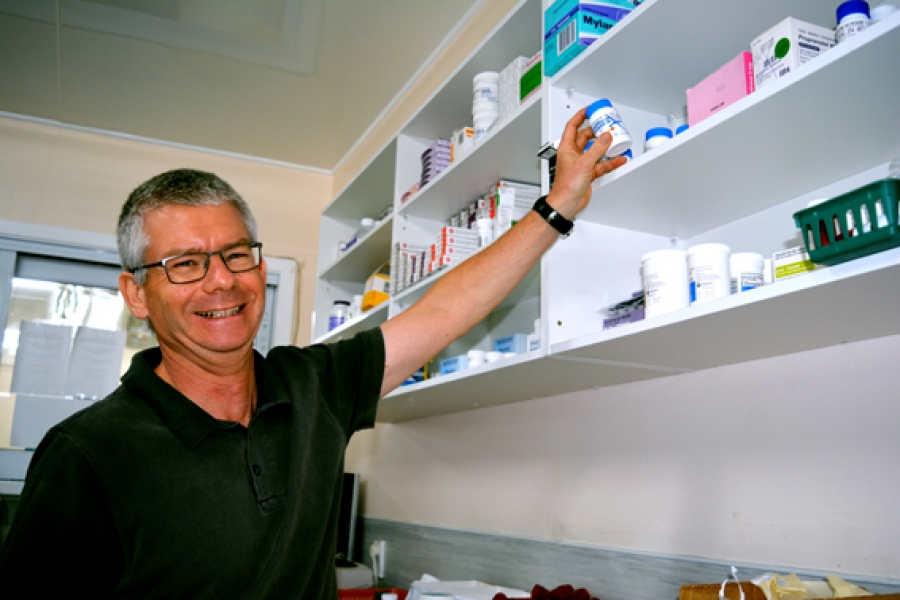Alcohol, prescribed drugs can kill
Wednesday 28 December 2022 | Written by Cameron Scott | Published in Health, Local, National

Cook Islands Ministry of Health chief pharmacist, Andrew Orange. 16080910
The dangers of drinking while also taking prescription medicine have been highlighted in a story by the NZ Herald. That danger is present here too, especially at this time of the year when people are “socialising” more, says Rarotonga hospital pharmacist Andrew Orange.
Asked to comment on the story, which highlights the fact that taking some medications while drinking alcohol can affect your body and mind in unexpected ways and can even kill you, Orange said he had little to add, except to advise that it’s important to always carefully read the labels on medicines before taking them.
“There’s always a warning on the label for those medicines that shouldn’t be taken with alcohol.”
The NZ Herald story was written by Nial Wheate, an associate professor of the Sydney Pharmacy School, University of Sydney and Jessica Pace an associate lecturer at the University of Sydney
They say that after you take a medicine, it travels, naturally enough, to the stomach.
“From there, your body shuttles it to the liver, where the drug is metabolised and broken down before it goes into your bloodstream. Every medicine you take is provided at a dose that takes into account the amount of metabolism that occurs in the liver.
“When you drink alcohol, this is also broken down in the liver, and it can affect how much of the drug is metabolised.
“Some medicines are metabolised more, which can mean not enough reaches your bloodstream to be effective.
“Some medicines are metabolised less. This means you get a much higher dose than intended, which could lead to an overdose. The effects of alcohol (such as sleepiness) can act in addition to similar effects of a medicine.
“Whether or not you will have an interaction, and what interaction you have, depends on many factors including the medicine you are taking, the dose, how much alcohol you drink, your age, genes, sex and overall health.”
The article says women, older people and people with liver issues are more likely to have a drug interaction with alcohol and adds that many medicines interact with alcohol regardless of whether they are prescribed by your doctor or bought over the counter, such as herbal medicines. Sometimes the effects can lead to death.
“Drinking alcohol and taking a medicine that depresses the central nervous system to reduce arousal and stimulation can have additive effects,” the article says.
“Together, these can make you extra drowsy, slow your breathing and heart rate and, in extreme cases, lead to coma and death. These effects are more likely if you use more than one of this type of medicine.”
Medicines to look out for include those for depression, anxiety, schizophrenia, pain (except paracetamol), sleep disturbances (such as insomnia), allergies, and colds and flu.
“It’s best not to drink alcohol with these medicines, or to keep your alcohol intake to a minimum,” the article warns.
“If you plan on drinking alcohol these holidays and are concerned about any interaction with your medicines, don’t just stop taking your medicines.”
Cameron Scott/NZHerald














































